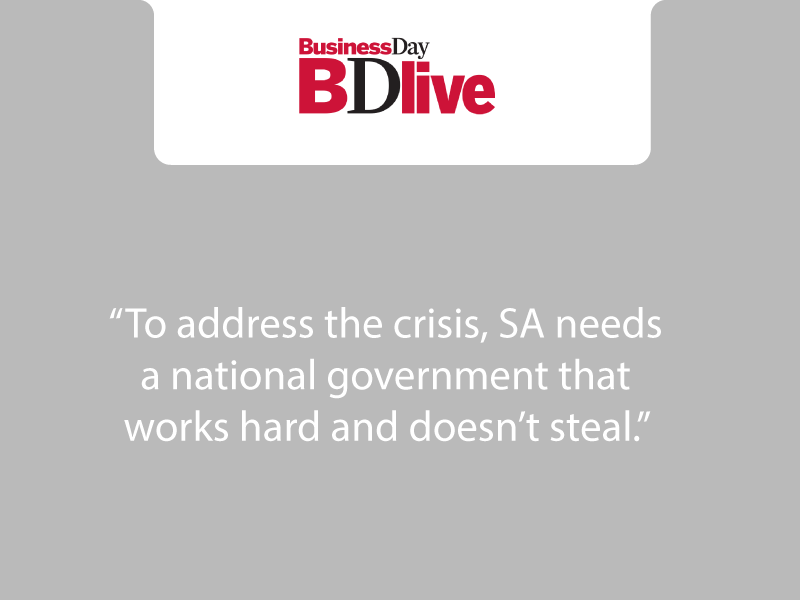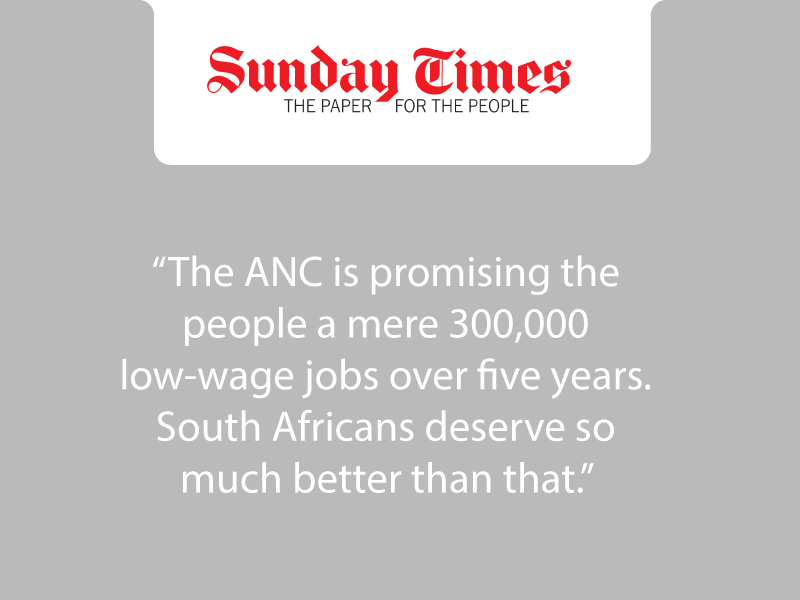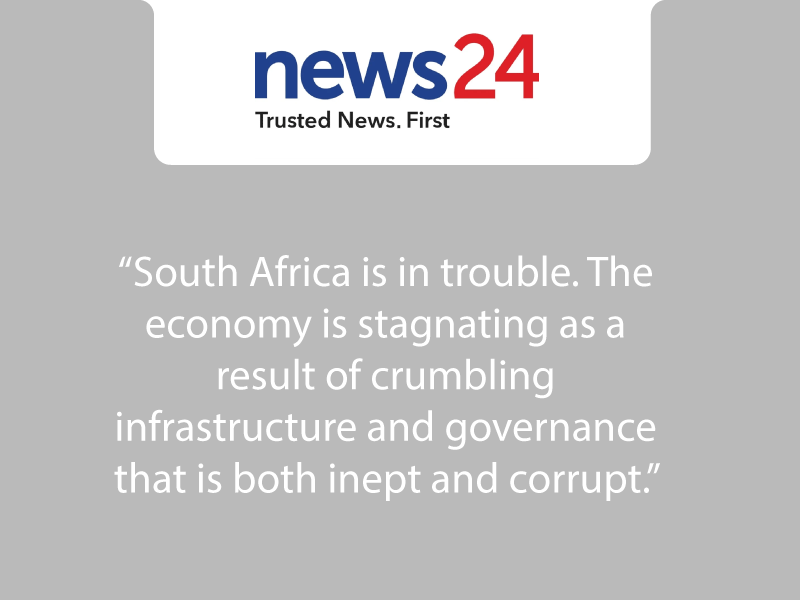
SA IS slipping into deep trouble. From the state of the nation address and the budget, it is clear there will be no attempt to change course. In almost all respects it will be business as usual.
SA faces the most severe energy supply crisis in its history. We are asking large industrial users to minimise electricity usage and are deterring investment because of our erratic supply. Yet the government refuses to behave any differently.
Instead of appointing a world-class team of engineers and managers to turn Eskom, Medupi, Kusile and the country’s energy supply around, we repeat the many mistakes that have led us into this disastrous situation in the first place.
The fastest growing item in the budget is debt-service costs but the assumptions underpinning the forecast of a falling budget deficit between now and 2017 appear to many to be optimistic. The country does not have a strategy to deal with our huge unemployment challenge and we are still failing to deliver quality education and training to the vast majority of young people.
Economic growth was a dismal 1.5% last year and with rolling blackouts and no fundamental policy shifts SA looks set for prolonged stagnation.
The paradox is that, faced with this deteriorating situation, many people retreat from public life and civic engagement. But countries in trouble need more engaged and organised citizens: to defend the constitution, to express indignation, to develop and promote alternative approaches.
In this context let us turn to a key component of civil society and ask some questions about business. Is the right strategy one of public silence from leading business organisations? We know there are conversations going on in private, at the National Economic Development and Labour Council and elsewhere but is that sufficient and is business being tough enough?
Business in SA today is a complex sector. It ranges from crony capitalists to colluding cabals to struggling small enterprises to world-class companies. My remarks are aimed at those very many honest executives and managers who run great local and international businesses, small and large.
The country is preoccupied with diversions. It is not focused on the central issue of how to get back to higher growth and build an economy that creates many more jobs. Business leaders and organisations should play a key role in driving the public focus of attention back to strategies for higher growth and the reforms required to make this possible. Behind-the-scenes discussions have their use.
Nonetheless, it is hard for those on the outside to see their value and the country’s parlous situation does not inspire confidence in this approach. Business needs its own priorities for reform. What do business leaders and representative organisations see as the key measures vital to return SA to higher growth and build a more labour-intensive economy? In developing such an agenda, there are some things to bear in mind.
- For many South Africans business is not seen as an innocent bystander in the predicament of enormous poverty, mass unemployment and great inequality. Thus, for some, when you talk of higher growth, they worry the fat cats will be the beneficiaries. The case needs to be made and then communicated for inclusive growth.
- The case against state-led development needs to be made. Though the performance of the state in the past few years would seem a definitive argument against a dirigiste approach, there are many who do not see this. The compelling evidence and international experience for a market-led approach to SA’s future growth needs arguing. The National Development Plan is correct on the reforms required to meet the country’s need for a professional public service. However, little is said about the necessity for this reformed public service to appreciate the power of markets and how to create a business-friendly environment.
- Business is good for society and essential for sustained development. And yet companies that are so skilled at “selling” their products and services and creating new needs and demands are incredibly weak at communicating the overall benefits of a market economy and the positive contribution they make to society. Companies are continually being pressured to “do more”, to demonstrate what benefits they provide SA in addition to just doing business. But the debate about “responsible” corporations takes for granted the everyday activities of companies and their contribution to society. This is what makes it possible to focus so much attention on what else a company must do to contribute to the social good.
- Companies should stop apologising for their existence; stop overemphasising their social investments. They should much more creatively and imaginatively devote time and effort to communicating the good they do by “just doing business” and running profitable companies.
- Ignorance about what business has achieved in 20 years of democracy is profound. Considering the small pipeline of talent coming out of SA’s education and training system, it is remarkable what progress has taken place in corporate SA. Instead of letting the “nothing is good enough” brigade drive public perceptions, companies should find compelling ways of telling this story.
- Finally, business should acknowledge the challenges to “free enterprise” and to good business in SA. They should engage more on these issues. They should get their own house in order — by promoting more effective labour relations in large firms or using resources and influence to ensure much more effective business organisations.
Business silence is not a good strategy for a country in trouble. Strategic engagement in public by the largest component of civil society can help to lead a stronger set of voices for growth, jobs and quality education. This is not the only lever available to business leaders but collective silence punctuated by sporadic comments from individuals totally frustrated or “betrayed” is not the most effective approach. SA is in trouble but this is not the time for business leaders and key organisations to stand down. They need to step up.
- Ann Bernstein is executive director of the Centre for Development and Enterprise and author of the award-winning book, The Case for Business in Developing Economies.




